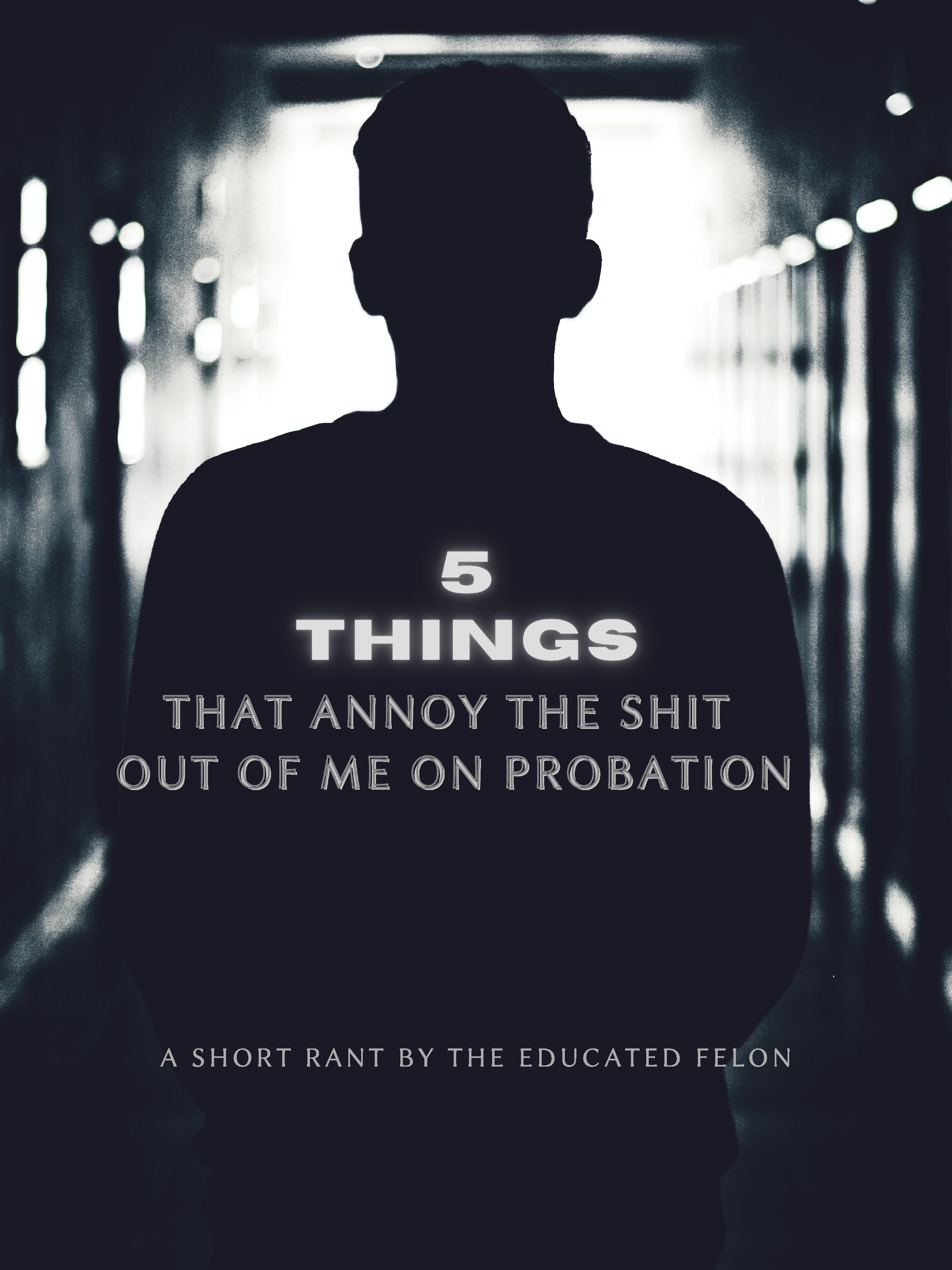A Parent’s Guide to Explaining Probation to Kids (2025)
Discover age-appropriate strategies for explaining probation to your children. Learn how to support your kids, maintain family bonds, and navigate the difficult challenges of criminal justice together.
The Elephant in the Living Room: When Probation Crashes Your Family Party
Imagine this: Your child’s eyes light up as they hear the front door open, expecting Daddy to walk in from work. But Daddy isn’t coming home tonight, or maybe for many nights. How do you explain that Daddy is “in trouble” but not in jail?
Welcome to the complex world of explaining probation to children – a tightrope walk between honesty and age-appropriate information that no parenting book prepared you for.
The Numbers Don’t Lie: Shocking Stats on Families and Probation
Before we dive into solutions, let’s set the stage with some eye-opening statistics:
- 👪 Over 3 million children in the U.S. have a parent under some form of correctional supervision
- 😢 70% of children with an incarcerated parent show symptoms of post-traumatic stress disorder
- 🏫 Kids with parents on probation are 3x more likely to have behavioral issues in school
- 💔 50% of relationships end when one partner is on probation
- 🧠 Children of probationers are 6x more likely to become involved in the criminal justice system themselves
The Age of Innocence Meets the Age of Consequences: Tailoring Your Talk
| Age Group | Understanding Level | Approach | Key Points to Cover |
| 3-5 years | Limited concept of time and rules | Simple, concrete explanations | Daddy/Mommy made a mistake and is making it right |
| 6-9 years | Beginning to understand rules and consequences | More detailed explanations, use analogies | What probation means, how long it lasts, how it affects daily life |
| 10-13 years | Can grasp more complex concepts | Honest discussions, encourage questions | Legal terms, consequences of actions, importance of following rules |
| 14+ years | Can understand adult concepts | Frank conversations, involve them in support plans | Details of the offense, impact on family, ways they can help |
From Confusion to Clarity: Top Strategies for Talking to Kids About Probation
- Keep it Age-Appropriate:
- Use language and concepts they can understand
- For younger kids (3-5 years):
- Use simple analogies, like “Daddy/Mommy is in a big time-out”
- Read picture books about making mistakes and learning from them
- Use puppet play to act out scenarios
- For school-age kids (6-9 years):
- Explain probation as a “second chance” to make things right
- Use examples from school rules to draw parallels
- Create a visual calendar to show the probation period
- For preteens (10-13 years):
- Introduce basic legal terms in simple language
- Discuss the consequences of actions more thoroughly
- Use real-life examples they can relate to
- For teenagers (14+ years):
- Be more detailed about the legal process
- Discuss the offense in general terms if appropriate
- Involve them in family discussions about coping strategies
- Be Honest, But Gentle:
- Don’t lie or make up stories – kids can sense when you’re not being truthful
- Use phrases like “Daddy/Mommy made a mistake” rather than “Daddy/Mommy is bad”
- Emphasize that the parent is working to make things right
- Reassure them that the parent still loves them and the family
- Be prepared to have multiple conversations as they process the information
- Address Their Fears:
- Proactively ask what they’re worried about
- Let them know they’re not responsible for what happened
- Assure them that they’re safe and cared for
- Discuss any changes in routine or living situation openly
- Explain that it’s okay to still love and miss the parent on probation
- Encourage Questions:
- Create a safe space for them to ask anything they’re wondering about
- If you don’t know an answer, it’s okay to say so and offer to find out together
- Set up a “question jar” where they can anonymously put questions they’re shy about asking
- Have regular “family check-ins” to discuss any new questions or concerns
- Maintain Routines:
- Keep as much normalcy in their lives as possible
- Stick to regular meal times, bedtimes, and activities
- If routines must change, involve kids in creating new ones
- Create new family traditions that work within probation constraints
- Use Positive Reinforcement:
- Praise children for their resilience and understanding
- Highlight the parent’s efforts to improve and follow probation rules
- Create a family reward system for supporting each other during this time
- Manage Information Flow:
- Decide as a family what information to share with others (teachers, friends)
- Role-play with kids how to respond to questions from peers or adults
- Teach them it’s okay to say “That’s a private family business” if they’re uncomfortable
- Promote Emotional Expression:
- Encourage kids to express their feelings through art, writing, or play
- Validate their emotions, even difficult ones like anger or shame
- Teach healthy coping mechanisms like deep breathing or journaling
- Foster Connection with the Parent on Probation:
- Facilitate regular communication through calls, letters, or video chats
- Help children create care packages or artwork to send
- Discuss the parent’s progress and any positive changes they’re making
- Seek Professional Help When Needed:
- Consider family therapy or individual counseling for children struggling to cope
- Look for support groups specifically for children of probationers
- Consult with school counselors for additional support in the educational setting
“The key is to create an atmosphere of open communication, where children feel safe expressing their thoughts and emotions about the situation.” – Dr. Family Bonds, Child Psychologist
From Heartache to Hope: Real Families, Real Stories
The Bedtime Story Twist: Sarah’s Tale
Sarah, 8, couldn’t understand why Daddy couldn’t read her bedtime stories anymore. Mom explained, “Daddy made a mistake and now has a special teacher helping him learn to make better choices. He can’t come over, but he can read to you on video calls!”
Pro Tip:
- Create a “Daddy/Mommy Time” routine for video calls, making them a special event
- Help your child prepare questions or stories to share during these calls
- Use a visual calendar to mark upcoming call days, building anticipation
- After calls, engage in an activity that helps process emotions, like drawing a picture about the conversation
The Bullying Battle: Jason’s Journey
Jason, 13, faced bullying when classmates learned about his mom’s probation. His dad helped him role-play responses and taught him about restorative justice, turning Jason into an anti-bullying advocate at school.
Pro Tip:
- Work with school counselors to create a support plan for your child
- Teach specific phrases to use when confronted, like “My family’s private matters don’t define me”
Help your child identify trusted adults at school they can turn to if bullying occurs Encourage involvement in positive school activities to build self-esteem and peer connections
The Family Project: The Martinez Mission
The Martinez family turned mom’s probation into a family growth project. They created a “Good Choice Chart” for everyone, including mom, fostering accountability and support for all family members.
Pro Tip: For The Martinez Mission:
- Extend the “Good Choice Chart” concept to create a family mission statement
- Hold weekly family meetings to discuss progress and challenges
- Involve children in setting family goals related to the probation period
- Create a family journal where everyone can share thoughts and feelings about their experiences
When Little Hearts Break: Recognizing and Addressing Emotional Challenges in Children
Watch for these red flags:
- Sudden changes in behavior or personality
- Decline in school performance
- Withdrawal from friends or activities
- Excessive worry or new fears
- Physical symptoms like headaches or stomachaches
- Regression to younger behaviors (e.g., bedwetting)
Expanded Action Plan:
- Create a safe space for open communication
- Designate a specific “talking spot” in your home
- Establish regular one-on-one time with each child
- Use “feeling cards” or charts to help younger children express emotions
- Practice active listening, repeating back what your child says to ensure understanding
- Consider child therapy or counseling
- Research therapists specializing in children of incarcerated or probationed parents
- Explore play therapy options for younger children
- Look into art therapy as a non-verbal way for children to express feelings
- Consider family therapy to address systemic issues
- Involve school counselors or teachers for additional support
- Schedule a meeting to inform key school personnel about the situation
- Develop an “emotional support plan” with the school counselor
- Request regular updates on your child’s behavior and performance
- Explore school-based support groups or mentoring programs
- Maintain consistent routines and boundaries
- Create a visual schedule for daily and weekly routines
- Involve children in setting age-appropriate rules and consequences
- Use positive reinforcement to encourage good behavior
- Be consistent with discipline, avoiding overly harsh or overly lenient approaches
- Encourage expression through art, play, or journaling
- Provide art supplies and encourage free expression
- Set up a “feelings corner” with stuffed animals, stress balls, and journals
- Engage in imaginative play, letting the child lead the narrative
- For older children, suggest starting a private blog or vlog
- Promote physical health and activity
- Ensure regular exercise through family activities or sports
- Maintain a nutritious diet to support emotional well-being
- Establish good sleep hygiene routines
- Teach and practice stress-reduction techniques like deep breathing or yoga
- Foster peer support and social connections
- Help arrange playdates or social activities with trusted friends
- Look for community programs for children in similar situations
- Encourage participation in team sports or group activities
- For older kids, explore online support forums (with proper supervision)
- Celebrate strengths and build resilience
- Identify and praise your child’s unique strengths regularly
- Teach problem-solving skills through real-life scenarios
- Share age-appropriate stories of overcoming adversity
- Create a “resilience toolkit” with coping strategies they can use
- Monitor media consumption and discuss content
- Be aware of how criminal justice is portrayed in media they consume
- Discuss any misconceptions about probation or legal issues they may encounter
- Use age-appropriate documentaries or books to educate about the justice system
- Encourage critical thinking about media representations of crime and punishment
- Plan for the future and maintain hope
- Help children set personal goals unrelated to the family situation
- Discuss plans for after the probation period ends
- Create a family vision board for the future
- Regularly remind children that the current situation is temporary
Remember, every child reacts differently. Be patient, flexible, and ready to adjust your approach as needed. If you notice persistent signs of distress or significant behavioral changes, don’t hesitate to seek professional help promptly.
Building Bridges, Not Walls: Maintaining Family Bonds During Probation
- Regular Communication:
- Set up scheduled calls or video chats with the parent on probation
- Help kids write letters or draw pictures to share
- Create a family journal that everyone contributes to
- Quality Time:
- Plan special activities within probation constraints
- Have family game nights or movie nights
- Create new traditions that work with the current situation
- Emotional Support:
- Validate children’s feelings, even difficult ones
- Share age-appropriate information about the parent’s progress
- Celebrate small wins and milestones together
- Community Connection:
- Find support groups for children of probationers
- Engage in community service as a family
- Maintain connections with extended family and friends
- Future Focus:
- Talk about plans for after probation ends
- Help children set personal goals and achievements
- Create a family vision board for the future
Your Family’s Lifeline: Resources and Support
Don’t navigate this challenging journey alone. Here are some lifelines:
- [Family Support Hotline]: 24/7 counseling and advice for families dealing with probation.
- Children’s Books about Parents in the Justice System: Age-appropriate reads to help kids understand.
- [Family Counseling Services]: Specialized therapy for families navigating probation.
- Online Support Groups: Connect with other families in similar situations.
The Light at the End of the Probation Tunnel: Growing Stronger Together
Explaining probation to your children is just the first step in a challenging journey. With honesty, love, and the right support, your family can emerge from this experience stronger and more united than ever.
Remember, this situation is temporary, but the resilience and bonds you build can last a lifetime. Your family’s story isn’t defined by probation – it’s defined by how you support and love each other through it.
Stay strong, stay together, and keep your eyes on the brighter days ahead. Your children are watching, learning, and growing through this experience. Show them the power of honesty, redemption, and unconditional family love.








2 Comments